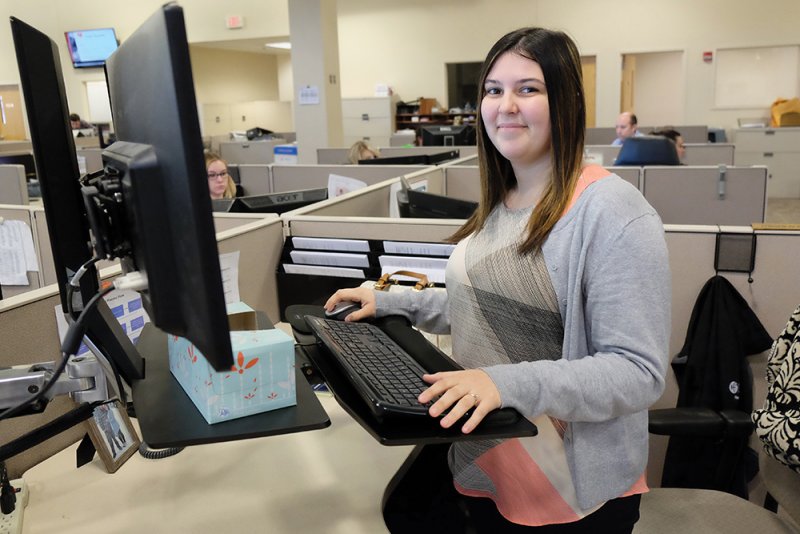
As more working adults return to school to learn new skills, colleges and universities are seeking ways to better support them. Many are providing training and education courses at workplaces and increasing “adult-friendly” delivery of education, such as more weekend and evening programs, blended learning and flexible scheduling, says Ross Gittell, chancellor for the Community College System of NH (CCSNH).
Phil Nazzaro, associate vice president of talent development at Southern NH University (SNHU) in Manchester, is among those with an eye to the future when it comes to delivering workforce development. “The example I use is Netflix,” Nazzaro says. “Netflix knows the movies and shows I want to watch before I even actually know that they are television shows,” he says.
Nazzaro explains that under the current system, students need to find the content, but in the future, colleges and universities will need to push appropriate content to potential students and businesses. “I think there’s an opportunity to have computers actually drive that, where based on an algorithm, [businesses and students] will be able to get information or modules pushed to them based on what they’ve engaged with already,” he says.
SNHU is looking at alternatives to its current learning management systems that have such an algorithm, Nazzaro says. “I think going forward,” he says, “we’re going to get more and more individualized development,” which means providing more “curated content.”
SNHU is also seeking to create microlearning opportunities, he says, where businesses can have employees or potential employees take short, almost tutorial classes in order to fulfill a need. “If I have to change out a faucet in my house, I don’t have to learn how to be a plumber; I just have to go to YouTube and watch a video,” he says. SNHU is examining how it can create short, specialized learning experiences aimed at imparting a specific skill.
Franklin Pierce University in Rindge is building certificate programs to meet such needs. “We recognize we need to be more strategic in how we are developing coursework,” says Edward French, dean of the College of Business. “Every position out there is not necessarily requiring an undergraduate degree with that particular major.”
Beginning with the management degree that Franklin Pierce currently offers, French says the school is also working on a way to offer content in logistics, data analytics and other skills that would allow it to create a credential. He says he recently spoke with the general manager of a distribution center for a large company in the state and asked the manager to name a degree that would be helpful for his employees to attain.
“He could not articulate a degree,” French says. “What he could articulate were skills that they needed to have,” French says, underscoring that employers are seeking content knowledge rather than degrees, and that means the university needs to develop certificates and other credentials focused on those skill sets. “We’re early in that process, but it is very much on our radar screen and it’s going to happen sooner rather than later,” he says.
Focus on Experiential Learning
These are just some of the new approaches colleges and universities are taking to meet professional development and workforce needs, but they are also finding ways to enhance traditional methods, such as internships. “Increasingly, employers look for graduates who can apply classroom [knowledge] in professional environments, which can be achieved through internships, shadowing, capstones and part-time work,” says Trudy Van Zee, associate vice provost for Career and Professional Success (CaPS) at the University of NH (UNH) in Durham. “They care less about specific academic majors and more about soft- and hard-skill acquisition.”
Van Zee says in response, UNH has steadily built “thousands of relationships with employers who use internships as a recruitment strategy.” In fact, she says, 78 percent of the graduating class of 2017 at UNH had at least one internship, which is 19 percent higher than the national average.

Colin Graham, a University of NH chemical engineer major, interned at Lonza Biologics during the summer of 2017. Courtesy of UNH.
UNH works with businesses to help ensure the success of internships by helping to craft internship descriptions, determine competitive pay, navigate the NH Department of Labor requirements for unpaid internships, market internship opportunities to students, coordinate recruiting activities on campus, and provide best practices for internship programs.
“The scale and pace of change in every industry is extraordinary,” says Van Zee. “Businesses are scrambling to understand workforce implications and develop talent strategies to spot and close skills gaps. A no-fail strategy is to partner with colleges and universities to enhance the learning that happens inside and outside the classroom. A benefit to focusing on freshly minted graduates is that they are just that—new to the workforce and absent of old skills.”
CCSNH has also been working to build programs that can quickly fill workforce pipelines with highly trained candidates. For example, CCSNH also has advanced composite training programs that are “stackable,” allowing students to apply credits earned through a certificate program toward a degree. Gittell says that this allows students to transition to an associate degree program, enter the workforce, and earn a bachelor’s degree.
Gittell says that these programs better connect the dots between what employers want and what employees need to move up the ladder, because program faculty work directly with businesses on program curriculum, courses and learning objectives. For example, Gittell says, the system provides medical assistant training programs that are short-term and combine classroom lessons with on-the-job training at Exeter Hospital and others.
Similarly, Daniel Henderson, director of corporate partnerships and strategic initiatives at Keene State College has spent the past few years cultivating relationships with businesses to develop cooperative programs. One such initiative—the Manufacturing Partners’ Scholarship Program—kicked off in 2015 and is having success, says Henderson.
“It’s for freshmen or sophomores interested in pursuing manufacturing careers,” Henderson says. “We introduce them to companies [that] are very interested and have been very supportive of bringing students in as interns,” he says. The founding sponsors of the program included Hitchiner Manufacturing in Milford, Markem-Imaje in Keene, and Whelen Engineering in Charlestown, Henderson says. Students participating in the program also receive financial assistance as well as mentoring and experiential learning.
Franklin Pierce requires all business majors to have an experiential component to their educations. “So they are doing internships,” says French. “What I think is different now is that it is much more strategic.” Rather than faculty developing individual relationships with businesses or students stumbling across opportunities, he says, the internship program at Franklin Pierce has become more intentional and is designed to ensure that students have a valuable experience that will prepare them to secure a job after they graduate.

A Franklin Pierce University student working in the office at C&S Grocers in Keene. Courtesy of Franklin Pierce University.
For example, French says, about two years ago, C&S Wholesale Grocers in Keene, the largest grocer in the country, approached Franklin Pierce about a potential partnership, as C&S was having difficulty recruiting and retaining employees in accounting and finance. “In about six months we solved it for them [by creating] a program called C&S Scholars,” French says, describing it as a “deep dive into experiential learning.” Students accepted into the program are guaranteed an internship with C&S in their junior year. Then, in their senior year, they take on a nine-credit, full-time cooperative experience with C&S, spending an entire semester working there. Students are paid for both the internship and the cooperative. “That’s transformational for Franklin Pierce and it’s allowing C&S to get a much closer view of the benefits the student is providing,” French says. Students then have the potential of landing a full-time job upon graduation.
French says colleges and universities have to be more nimble and be able to customize programs for businesses. “They need to be problem solvers and have the infrastructure to do things quickly because business doesn’t work at the same pace as academia,” he says.

 Current Issue - April 2024
Current Issue - April 2024